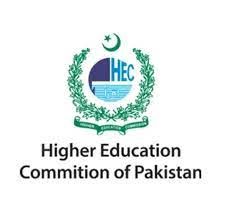Therapy in Focus: Global Perspectives on Rehabilitation and Healing
DOI:
https://doi.org/10.54393/tt.v5i03.236Abstract
Historically, healing practices vary widely across different cultures in different countries. From ancient herbal remedies to early forms of physical therapies. With the complexities of modern life, diverse cultures and countries face unique challenges, so it’s essential to share knowledge and best practices globally.
In the 20th century in formalizing therapeutic approaches significant strides were made. The advent of psychotherapy, physical therapy, and occupational therapy created a new era in rehabilitation, scientific inquiry, and evidence-based practice. After this multidisciplinary approach, professionals from different fields began collaborating more closely to address complex health issues. Rehabilitation involves a structural program to help people in a broader way that includes restoring health, regaining skills, disease prevention, treatment, and palliative care. An estimated 1 in 3 people living with a health condition would benefit from rehabilitation [1].
Today, therapies encompass a broad spectrum of practices. Physical therapy improves movement and function through exercise and manual techniques. Occupational therapy helps individuals to develop daily living and working skills. Psychotherapy targets mental health challenges by exploring emotions, behavior, and thoughts.
In many low and middle-income countries, over 50% of the population is left without access to essential rehabilitation services. In Western countries, there is a strong emphasis on evidence-based approaches and specialized care. But now many non-western countries also apply modern therapeutic methods with traditional healing practices. Advancements in the field of technology transformed the field. Digital tools like applications and virtual reality are being increasingly utilized to enhance therapeutic interventions.
Looking ahead, the future of therapy is poised for many transformative changes. The integration of machine learning promises and artificial intelligence, offering personalized treatment plans and improving the outcome predictions. The overall goal of rehabilitation is to help people to get their abilities and regain independence.
In conclusion, therapy's journey from its historical roots to its current form has been marked by advancements in growing global perspectives. Rehabilitation is an important part of health coverage globally. The need to extend the availability of essential rehabilitation is urgent and careful attention needs to be given to the system that delivers rehabilitation services. The ongoing advancement and innovation in the field of technology promise to enhance therapeutic practices and improve lives on a global scale.
References
Rehabilitation. World Health Organization. 2024. [Last cited: 05th Sep 2024]. Available at: https://www.who.int/health-topics/rehabilitation/rehabilitation-is-about-health-and-functioning-in-everyday-life#tab=tab_1
Downloads
Published
How to Cite
Issue
Section
License
Copyright (c) 2024 THE THERAPIST (Journal of Therapies & Rehabilitation Sciences)

This work is licensed under a Creative Commons Attribution 4.0 International License.
This is an open-access journal and all the published articles / items are distributed under the terms of the Creative Commons Attribution License, which permits unrestricted use, distribution, and reproduction in any medium, provided the original author and source are credited. For comments editor@thetherapist.com.pk










